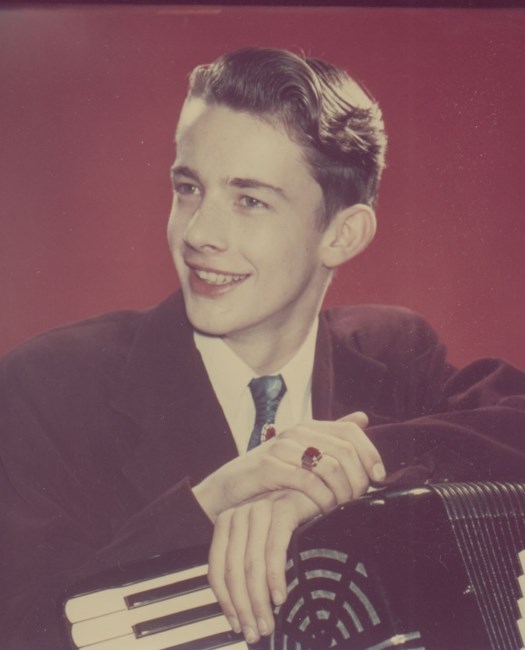
OBITUARY
Eugene Egnoski
July 15, 1935 – October 23, 2020

I first met Gene when he got me a job at the Glenwood State Hospital School for the Mentally Retarded in Glenwood, Iowa, after I lost my position at the University of Nebraska at Omaha in the late ‘70s. We were friends since then, going out to lunch almost every day while I was at Glenwood, and then after I left Glenwood about once or twice a week up until I moved from Omaha to Connecticut. We called each other twice a week after that for the ten years after I left Omaha. In some ways I don’t know why we kept in touch for so long. Our interests outside of psychology were quite different. He was into the Rorschach Inkblot Test much more than I was, attending many seminars and workshops on the use of the Rorschach, and getting to know many of the other devotees of this test of personality. I never had as much faith in this instrument, but I went along with his enthusiasm. His other major interest was in gambling, specifically horse racing and blackjack. He had been interested in this from an early age when he played cards with his friends. I admired his approach to gambling. I am convinced that he played the horses well enough to continue doing so for most of his life, always trying to figure out a better way to handicap the races and to bet. He kept extensive records and statistics. I am willing to believe that over the long term he was able to make money on racing, and he had many friends at the track. He had many stories about events and people at the track. From what little I understood about his methods, I believe that he had a unique and well constructed system for handicapping and betting. I encouraged him several times to write a book about it but he never did.
Playing blackjack was almost an entirely different story. Blackjack is a closed system that can be completely described mathematically, and thus its outcomes predicted with certainty. The only problem is one of tracking the cards and memorizing the rules for playing. Most people do not have the skills or determination do these things, but Gene did and he was thus able to win much if not most of the time playing blackjack. He was most successful when he was able to play with a partner who could tell him when to get in on the game. Even though he was often successful at blackjack, he never tried to win a lot of money, and thus was able to avoid, most of the time, the wrath of the house, but he was always aware that they were watching him.
These were Gene’s major interests when I knew him. He told me that in an earlier life he had also played the accordion in a band, but it was before I knew him. I was with him when his second wife, Mary, died, and I know that he was quite depressed over that. She was a brittle diabetic, never in very good health. I never got to know her very well, but he was lost without her. Gene had a son from his first marriage and two(?) stepchildren with Mary. He had maintained contact with his stepchildren over the years, but he had been estranged from his son, and had little contact with him. It was never clear to him why his son had stopped communicating with him, but his best guess was that his son’s wife did not want him in their lives. He enjoyed being with his children and talking about them.
Gene lived all of his life in Nebraska, except for vacations and trips to Europe and Mexico. HIs parents were first generation Polish, however, and his first language was Polish until he went to school and was introduced to English. He grew up on a farm in western Nebraska, an only child. He went to college at the University of Nebraska, and did his internship in school psychology in Omaha, where he lived the rest of his life. For him school psychology involved psychological assessments in the schools. He did some counseling, but his primary focus was on testing. After leaving the Nebraska schools, he worked at Glenwood until he retired from there. He continued to do assessments privately until fairly recently, and thus maintained his interests in psychology.
Gene met Beate when he started taking lessons in Polish after Mary died. He found that he was better than the other students because of his early background. He was lucky to have found Beate, and he was very helpful to her in dealing with her children and her ex-husband. In talking to him it was clear that he really enjoyed helping Beate and her children, and they learned a lot from him.
Gene was a good man. Even though he gambled, he was never reckless or irresponsible. He was honest and principled in his conduct. He always had stories to tell, and seemed to have a lot of friends.
Show your support
Add a Memory
Share Obituary
Get Updates
DONATIONS
: Family
Services
SHARE OBITUARY
- RECEIVE UPDATES
v.1.8.18